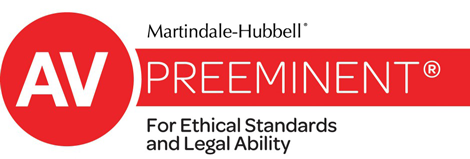
Heartburn Drugs Linked to Kidney Disease
People who use certain heartburn drugs like Nexium and Prilosec are 20-50% more likely to develop short- and long-term kidney problems than people who use other acid reflux drugs, according to recent studies. Personal injury lawyers are filing lawsuits alleging that drug manufacturers intentionally withheld information from consumers and the medical community about the risks of kidney injury associated with certain proton pump inhibitor (PPI) heartburn medications.
Kidney injuries associated with these heartburn drugs include:
- acute interstitial nephritis (AIN)
- chronic kidney disease (CKD)
- end-stage renal disease (ESRD)
Kidney Injury from Nexium or Prilosec? Know your Rights.
If you have suffered kidney damage and have taken Nexium, Prilosec, or other proton pump inhibitor drugs, you may have a legal claim.
Call toll-free (800) 254-5676, or fill out the form for a free, confidential attorney consultation.
No Attorney Fees Unless You Win
We are compensated for our legal services when we successfully resolve our clients’ claims. If we are unable to successfully resolve your claim, you are not obligated to pay attorneys’ fees.
For answers to more questions about legal fees and costs, call toll-free (800) 254-5676, or send us a Text or Message using the form in the right column.
Heartburn Drugs Being Investigated
| Nexium | Prilosec |
| Prevacid | Dexilant |
| Protronix | Aciphex |
| Zegerid | Kapidex |
About Us: National Pharmaceutical Injury & Class Action Law Firm
– Jackie Y.,
Chrysler TIPM Client
Our personal injury lawyers are national leaders in pharmaceutical litigation and have represented thousands of people injured by defective drugs and devices, including Risperdal anti-psychotic drugs, Yaz birth control, Actos diabetes drugs, Pradaxa blood thinner, Granuflo dialysis drugs, transvaginal mesh implants, the Mirena IUD, testosterone supplements, and Medtronic heart defibrillators.
We also have extensive class action and complex litigation experience, representing clients in lawsuits ranging from consumer fraud and securities litigation to employment and whistleblower lawsuits.




Heartburn Drug Study Details
The study in the Journal of the American Society of Nephrology compared the risk of kidney injury from proton pump inhibitors to the risk of kidney injury from a different class of heartburn drugs called H2 blockers, or histamine H2-receptor antagonists.
For five years, researchers monitored the renal health of 173,321 people who took PPI drugs like Nexium, Prilosec, Prevacid, Dexilant, Protronix, Aciphex, Zegerid, and Kapidex and 20,270 people who took H2 blockers like Zantac and Pepcid.
After five years, researchers determined that people who used PPI heartburn drugs may be 96% more likely to develop kidney failure and 28% more likely to develop chronic kidney disease than people who used H2 blockers like Zantac and Pepcid. Over the course of five years, 15% of people using PPIs developed chronic kidney disease.
According to CBS News, the study also examined the incidence of kidney injury among people who took drugs like Nexium, Prilosec, Prevacid, Dexilant, Protronix, Aciphex, Zegerid, and Kapidex once daily with people who took the drugs twice daily; those taking PPIs twice a day were 46% more likely to develop chronic kidney disease, compared to a 15% increased risk for CKD with once-daily use.
To read an abstract of the study or purchase the full article, click here.
Nexium TV ads?
– Elaine S.,
Transvaginal Mesh Client
Have you been inundated with Nexium and Prilosec lawsuit television commercials discussing the risks of kidney damage associated with proton pump inhibitor drugs?
We encourage our potential clients to interview each law firm to make sure the firm is a good fit and that it can properly address the clients’ needs and expectations from a lawsuit.
Unlike the firms responsible for many of the television advertisements, the attorneys with Gibbs Mura handle your case personally and litigate it from start to finish. Our team members are always available to discuss the details and progress of your case at any time.
Types of Kidney Injuries Associated with Nexium and Prilosec
The use of PPI heartburn drugs is associated with acute interstitial nephritis (AIN), chronic kidney disease (CKD), and end-stage renal disease (ESRD).
Acute interstitial nephritis causes the spaces in between the tubules of the kidney to become swollen and inflamed. Sudden AIN impairs the kidney tubules’ absorption of water and beneficial substances from the blood, as well as the secretion of waste into urine.
Chronic kidney disease is a condition characterized by the kidneys’ failure to properly filter the blood. During CKD, kidneys gradually lose function, resulting in the build-up of dangerous levels of fluid, electrolytes, and waste.
Chronic kidney disease may ultimately lead to end-stage renal disease and kidney failure, both fatal if not treated by regular dialysis or a kidney transplant.
Though the medical community is unsure how PPI drugs damage the kidneys, CBS News report theories that the decline of magnesium caused by PPI drugs as well as inflammation in the kidney may lead to AIN, CKD, or ESRD.
Kidney Damage from PPI heartburn medication? Get a free consultation.
You may be eligible for compensation from the drug manufacturers if you have suffered acute interstitial nephritis (AIN), chronic kidney disease (CKD), or end-stage renal disease (ESRD) and have taken Nexium, Prilosec, or other PPI drugs.
To get your potential claim started, call toll-free (800) 254-5676, or fill out the form.
How Proton Pump Inhibitors Work
Nexium (esomeprazole) and Prilosec (omeprazole) belong to a class of drugs called proton pump inhibitors (PPIs). PPIs have been used since the early 1980s to treat gastric acid disorders like gastroesophageal reflux disease (GERD) and heartburn in which stomach acid is regurgitated into the esophagus.
PPIs relieve gastric acid disorders by reducing the production of stomach acid via proton pumps, or enzymes in the cells of the stomach lining which produce the main component of stomach acid, hydrochloric acid.
Widespread Use of PPIs Creates Big Market for Nexium, Prilosec
According to NPR, one in 20 Americans use PPIs to treat gastric acid disorders. Healthline reports that in 2008, the market for esomeprazole and omeprazole medications was $13.9 billion.
Prior to 2014, Nexium was only available by prescription. Presently, Nexium OTC, Prilosec OTC, and numerous brand-name equivalents such as Prevacid, Protronix, Dexilant, Aciphex, Zegerid, and Kapidex, are available over the counter as well as by prescription.
FDA Mandates Nexium Label Change
In 2014, the Food and Drug Administration mandated a label change to Nexium tablets indicating the increased risks of acute interstitial nephritis (AIN), inflammation in the kidneys which inhibits proper filtration of the blood.
The label change also required Nexium bottles to bear warnings regarding vitamin B12 deficiencies.
Prescription PPIs Associated with Osteoporosis
Three years prior in 2011, the FDA advised medical practitioners and patients to exercise caution when using high-dose prescription PPIs for periods of a year or longer, citing increased risks of osteoporosis and bone fractures.
H2 Blockers
The risks of kidney damage at issue in this lawsuit do not pertain to a class of heartburn drugs called H2 blockers, or histamine H2-receptor antagonists. Examples of brand-name H2 blockers include Zantac, Pepcid, Tagamet, Tazac and Axid.
Nexium Antitrust Lawsuit
Our firm is currently litigating another lawsuit against Nexium manufacturer AstraZeneca concerning the pharmaceutical company’s alleged antitrust violations. According to the lawsuit, AstraZeneca paid substantial sums of money to generic drug manufacturers in exchange for their agreement to delay the production and marketing of generic versions of Nexium until May 2014.
Gibbs Law Group’ founding partner Daniel Girard serves on the court-appointed Executive Committee in the federal Nexium Antitrust litigation.
Our Commitment to Excellence
Gibbs Mura has earned Tier-1 rankings for Mass Tort and Class Action Litigation and has been named in the U.S. News – Best Lawyers “Best Law Firms” list for four consecutive years since 2013.
We have recovered over a billion dollars for our clients against the world’s largest corporations in cases concerning auto defects, drug and medical device injuries, data breaches, securities fraud, antitrust matters, and employment law violations.